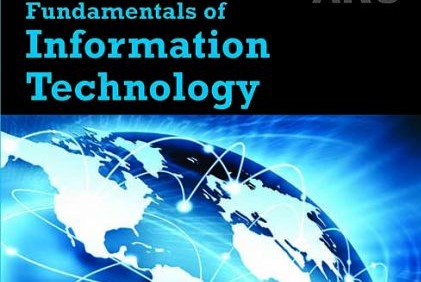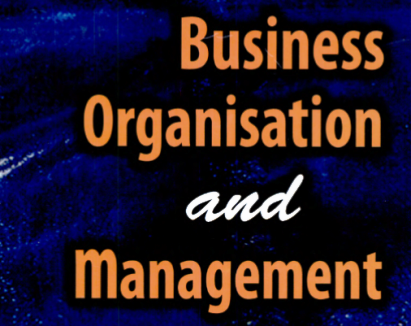Course Summary: The basic fundaments of computers through applications of information technology which enriches the knowledge of modern-day students of the evolution of technology.
Course Objective: To understand the basic concepts and terminology of information technology.
Course Outcome:
CO1: The student will know the architecture of a computer, general features, and generations of computers.
CO2: Different hardware components and their role help the student understand the functioning of a computer.
CO3: Learning about data storage systems help students know the capacity and range of different storage devices for safe storage, transfer, and retrieval of data.
CO4: The evolution of programming languages and their developments gives an understanding of problem-solving in different platforms.
CO5: Students learn about different software and operating systems that satisfy user concerns.
CO6: Data communication and networking help students share data with reduced expenses and improved efficiency.

- Teacher: JERUSHA SHALINI VASKA
Course Overview:
The world of business is a vast and interesting universe. This course aims to develop the student’s theoretical knowledge of the rudiments of business organizations. In this course, the student will learn about the basics of business and its services, functioning, and importance to an economy, as well as the forms of organizations with specific reference to India. The emphasis would also be placed on joint-stock companies and sources of corporate finance. It is the first step to understand the working of the business world and will also be resourceful for similar upcoming courses in higher education.
Course Objectives:
· To gain knowledge about the concepts and forms of business
· To elucidate the broad functions of business organizations
· To understand the working of the joint-stock companies
· To grasp the importance and working of stock markets
· To express opinions about business organizations in written and oral form, based on the basic knowledge and skills acquired
· To learn the importance to be updated on the developments of the business world and practice the same.

- Teacher: CHANDRA SEKHAR ALLADI
Course Description:
Financial Accounting 1 is a 5 credit course with 65 sessions.
Course Objective:
This
course is intended to introduce the basic theory, concepts and practice of
financial accounting and to enable students to prepare the financial statements of sole trading business organisations.
Course Outcomes:
CO1: Know about importance of accounting in business, various branches of accounting and understand the terminologies used in business
CO2: understand the principles of accounting and method of recording, Journalising posting to ledgers and preparation of financial statements
CO3: know the method of preparing various subsidiary books
CO4: Know the reasons for disagreement between Cash book and pass book and also to reconcile them.
CO5: Know the importance of cash and non cash transactions types of errors that occur while recording and preparing financial statements
CO5: Know the causes for disagreement of trial balance and method of rectifying them
CO7: understand and differentiate between Capital and revenue items and its treatment
CO8: Know the difference between direct and indirect expenses, preparation of financial statements Trading account Profit and Loss account and Balance Sheet.
- Teacher: DEEPA AGRAWAL
Course Description:
The course addresses the English language needs of the students at the undergraduate level and it also acknowledges their critical thinking skills. The text exposes the students to a range of contexts where the language is used to meet a variety of real life communication needs, to give and seek information, to express opinions, and to engage with practical, emotional, intellectual and creative aspects of language by integrating knowledge and skills. The book emphasizes on the use rather than the usage, on how the English language is used rather than how it should be used. Each chapter is organized in such a way that it creates a lot of involvement and encouragement to the learner.
The syllabus has been designed to develop linguistic and communicative competence of undergraduate students. It includes four genres- Short fiction, prose, poetry and drama. The major part of of each lesson is devoted to remedial language learning which includes pronunciation, grammar, vocabulary, spelling and pronunciation. The focus is on the skills of Reading, Writing, Listening and Speaking The teacher also asks questions to stimulate classroom discussion and based on these discussions the students will be made to write short paragraphs /essays, participate in group discussions as part of continuous assessment.
Course Outcomes
The students will be able
to:
· Read short fiction, identify the various elements of a short story and write their own stories.
· Improve their pronunciation with the help of phonemic transcription.
· Figure out the etymological origins of English words by learning Greek and Latin roots, prefixes and suffixes, and learn to spell correctly.
· Distinguish the subtle differences in meaning and articulation in homonyms, homographs & homophones
· Learn different types of nouns, pronouns, auxiliary and main verbs.
· Be acquainted with the rules of punctuation concerning capitalization, commas, full stops, question marks and exclamation marks.
· Gain verbal competence in practicing how to introduce oneself in formal situation, describing one’s college and course of study, sustaining cordial conversations and leaving a voice mail.
· Read passages about the local culture, practices, history and personages of Telangana.
· Enhance their writing skills by learning how to draft paragraphs, sequencing sentences into coherent passages, describing something or someone in writing and writing a dialogue.
- Hone their soft skills and imbibe valuable life lessons to steer their course of life.
- Teacher: JYOTSNA A S
- Teacher: Dr. MAITHRY SHINDE